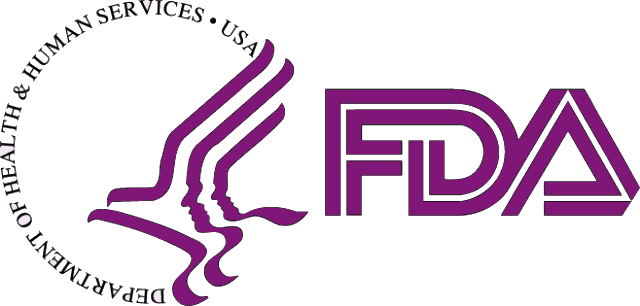
I’ve spent a lot of time reporting about the newly FDA approved highly cohesive, high-strength silicone gel breast implants by Sientra, but what does FDA approved really mean?
The FDA (U.S. Food and Drug Administration) makes distinctions for approval depending on what is being approved. Since the FDA reviews everything from tongue depressors to artificial hearts, it makes sense that different levels of review exist. It also means that “FDA Approved” means something different for different medical devices, pharmaceuticals and medical equipment.
It may surprise you to know that breast implants are one of the most investigated medical devices in the history of the FDA. Since their introduction half a century ago, the FDA has mandated several large studies, involving tens of thousands of women. These studies have proven the efficacy and more importantly the safety of the current and the next generation breast implants, and the work is ongoing. Large scale investigations of both saline and silicone breast implants continue today. We are over half way through ten-year studies on the currently available breast implants. I am a primary investigator in these studies, and many of my patients have volunteered to participate in order to provide up-to-date safety data for the next generation of breast augmentation patients.
FDA Approved Breast Implants
Breast implants are classified as a medical device. When FDA review is needed prior to marketing a medical device there are two levels of approval:
- FDA Clearance – The FDA will “clear” the device after reviewing a premarket notification, otherwise known as a 510(k) (a section in the Food, Drug, and Cosmetic Act), that has been filed with the FDA. To acquire clearance to market a device using the 510(k) pathway, the submitter of the 510(k) must show that the medical device is “substantially equivalent” to a device that is already legally marketed for the same use.
- FDA Approval – The FDA will “approve” the device after reviewing a premarket approval (PMA) application that has been submitted. To acquire approval of a device through a PMA application, the PMA applicant must provide reasonable assurance of the device’s safety and effectiveness.
When it comes to breast implants, FDA approval means a lot. For the three companies currently FDA approved to sell breast implants in the US (Allergan, Mentor and now Sientra), the process was long, involving years of research and thousands of women. The process allowed the FDA to identify several quality control issues with the French manufacturer PIP, before their breast implants were allowed to be marketed in the U.S. PIP did not receive FDA approval, and sale of these adultered breast implants was blocked. The FDA single-handedly protected U.S. women from the problems PIP breast implants are causing around the world. Providing, the women did not go outside the U.S. for their surgery.
FDA Approved Radiation-Emitting Electronic Products – Huh?
I consulted the FDA web-site for the definition. A radiation-emitting electronic product is any product that uses electricity to power an electronic circuit that gives off any kind of radiation. Radiation means energy traveling across space. X-rays, microwaves, radiofrequency (RF) waves, laser, visible light, sound, ultrasound, and ultraviolet light are a few examples of the many types of radiation that may be produced by an electronic product. These devices include many of the latest fads in non-invasive, non-surgical cosmetic rejuvenation. But “FDA Approved” does mean the same thing for these devices, despite what is implied by the glossy adds featuring women too young to need the procedures.
The emphasis for all device approval is safety. The main goal of the FDA is to be certain that the device, when properly used by a trained professional, is not likely to cause injury. Even a low energy laser pointer can cause you serious injury, if pointed at your eye. Like with implantable medical devices, the FDA does a good job in ascertaining device safety.
The efficacy side of FDA approval, for external medical devices like lasers, ultrasound and R-F devices, is much less strenuous. While thousands of women were enrolled in breast implant studies, most radiation-emitting electronic products’ studies have low numbers of enrollees (10 – 40 is not unusual). As long as no one is hurt, and one patient shows some improvement, the device is “FDA Approved.” So it’s still buyer beware, especially if you are promised something that sounds too good to be true.
The Tool vs. the Professional
FDA approval is very important for medical devices. As a Board Certified Plastic Surgeon, I appreciate everything the FDA does to provide me with the best tools of the trade. While the proper tools are important, the person holding the tool is even more important. If you are seeking cosmetic surgery, be certain to find a Board Certified Plastic Surgeon to be your guide. We are very fortunate in the San Francisco Bay Area to have some of the best training programs and professionals in the world. With the right tools, in the proper hands, great things are possible.
Previous Post Next Post